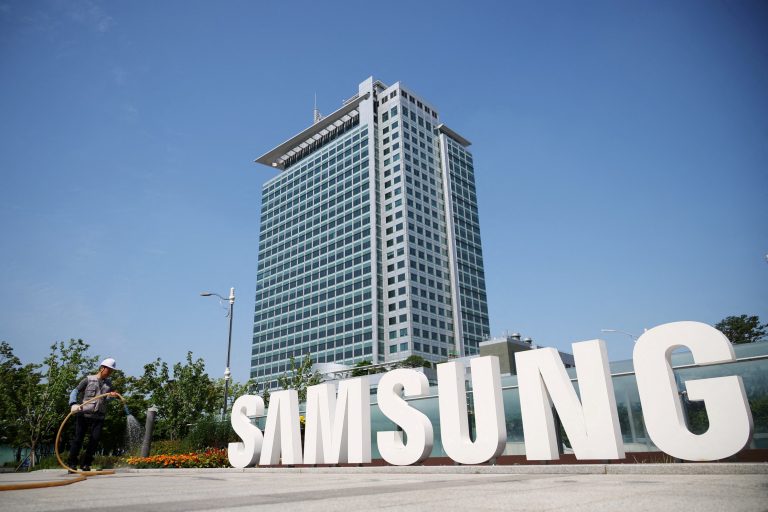South Korean prosecutors have accused a former Samsung employee of stealing and leaking sensitive information he used to help his new employer set up a chip factory in China.
Former Samsung executive and Singapore-based consultancy Jin Semiconductor executive Choi Jinseog (65) won a contract with Taiwan’s Foxconn, a global provider of computer technology services, in 2018.
Choi tapped his former employer’s supplier network and caused more than $200 million in damages to Samsung Electronics, prosecutors alleged in the indictment on June 12, based on the estimated costs Samsung spent to develop the stolen data.
Choi and five former and current Jin Semiconductor employees, and a Samsung employee must stand trial in court on July 12.
The 18-page indictment, which hasn’t been made public but made available to Reuters, detailed how Choi allegedly extracted trade secrets from Samsung and funneled them to Foxconn to set up a chip factory.
Success
You are now signed up for our newsletter
Success
Check your email to complete sign up
Immediately Choi set to work, the indictment said, and within two months, he had polled several Samsung employees and subcontractors and fished for sensitive information essential to setting up the workplace.
READ MORE:
- Computer Chip Overabundance Showing No Sign of Abatement
- South Korea’s Biggest Companies Are Overstocked With Unsellable Inventory
- ‘China Won’t Attack Taiwan If I Become President’: Taiwan’s Foxconn Founder Terry Gou
- Taiwan Likely to Fine Foxconn for Unauthorized China Investment, Source Says
Eventually, he was successful with two contractors, HanmiGlobal and Samoo Architects & Engineers. The latter supplied him with confidential information involving semiconductor cleanroom management which he obtained from Cho Youngsik, the indictment alleges.
Prosecutors allege Choi’s company also illegally obtained blueprints of Samsung’s China plant from Chung Chanyup, an employee at HanmiGlobal, which supervised its construction and floor layouts of wastewater treatment and other subsidiary facilities involving the chip manufacturing process.
Foxconn pull-out
According to the indictment, the new Foxconn plant had a planned capacity of 100,000 wafers per month using 20-nanometer DRAM memory chip technology.
While years behind Samsung’s latest 12- and 14-nanometer technology, 20-nanometer DRAM is still considered a “national core technology” by South Korea.
However, Foxconn eventually pulled out of the business for undisclosed reasons, and the factory never got off the ground. This, at least, claimed Choi’s lawyer, Kim Pilsung, and a person with knowledge of the case, according to Reuters.
HanmiGlobal also dismissed all responsibility and maintained the allegation was directed at Chung and that the company itself had no involvement.
Choi signed a preliminary consulting contract in around 2018 with Foxconn to erect the chip plant potentially in Xi’an, western China, his lawyer said.
Indeed, Choi found Foxconn willing to allocate 8 trillion won ($6 billion) for the whole project and transfer a few million each month to the account of Choi’s company, Jin Semiconductor.
Also, Jin Semiconductor’s 2018 annual report reported a “major customer” for qualified manpower for the next five years who had transferred an advance of $18 million, the report said.
‘An example for the current administration’s agenda’
- South Korean President Hits Back at ‘Wolf Warrior’ Rhetoric From China’s Ambassador Xing Haiming
- US Prosecutors Indict Chinese Fentanyl Precursor Manufacturers
However, Foxconn terminated the cooperation and only paid the ongoing expenses, the attorney said, giving no further details on how and why the sudden turnaround occurred, citing the matter’s sensitivity.
Choi, who has been detained since May, announced through his counselor that he denies all charges against him.
Lawyer Kim raised the possibility that his client had become the victim of the China-U.S. rivalry, in which the Korean government sacrificed Choi to further thwart the development of chip production by Communist China.
“This might be setting an example for the current administration’s agenda, such as technology leaks to China,” Kim said.
Reuters contributed to this report.


















